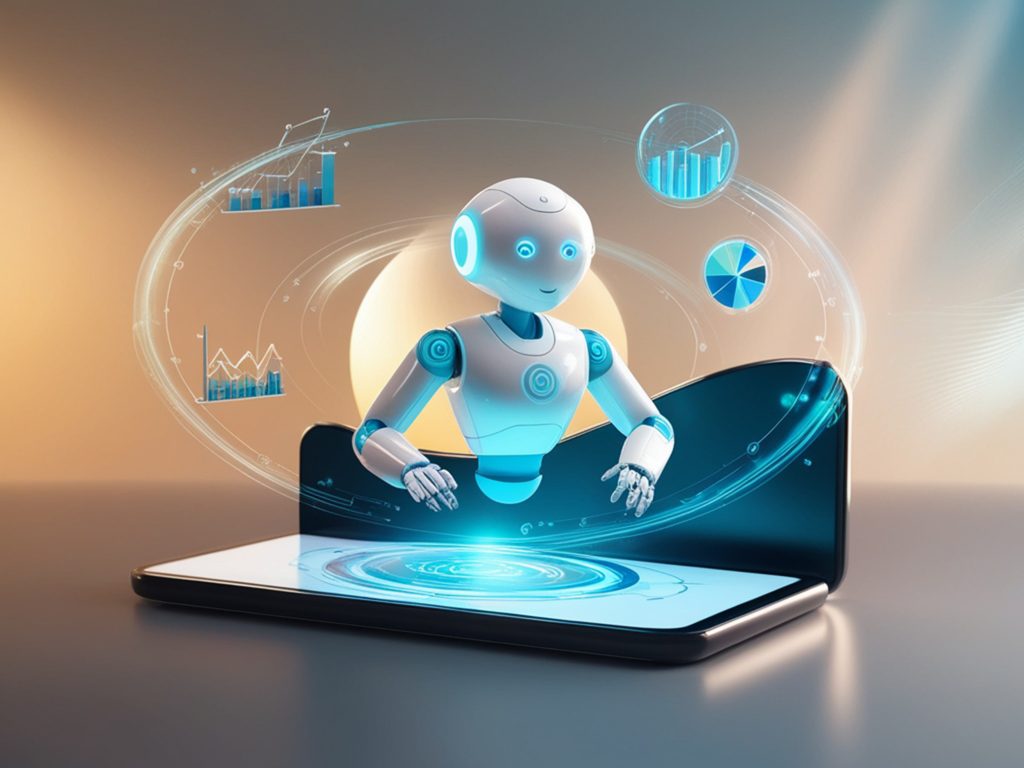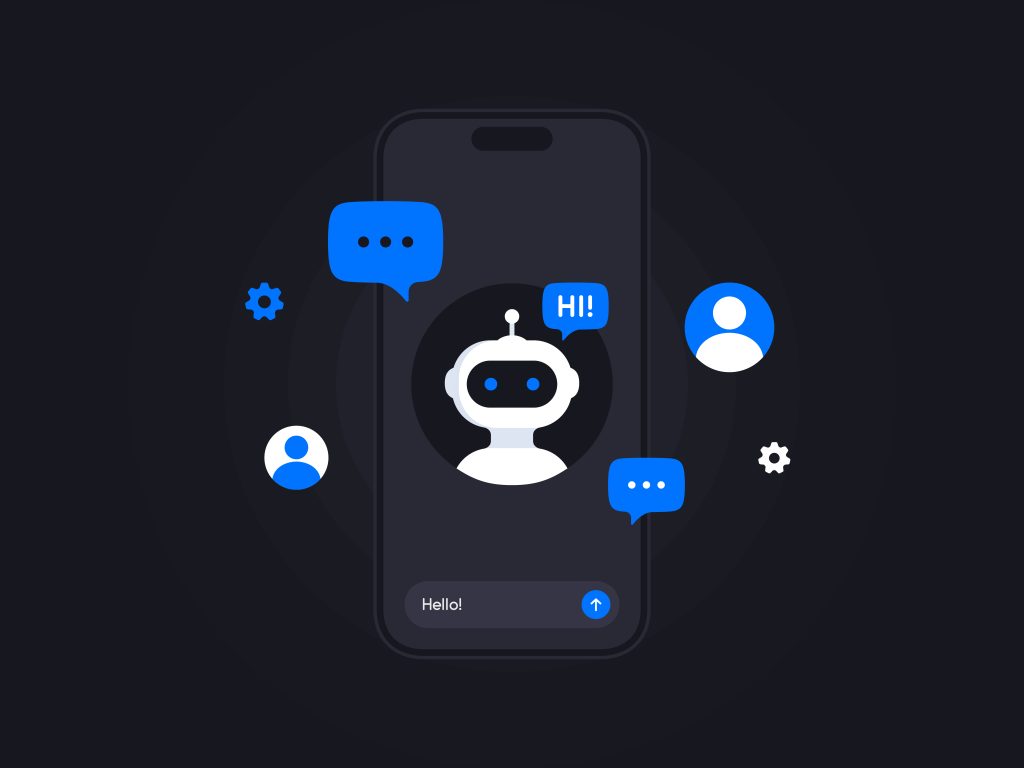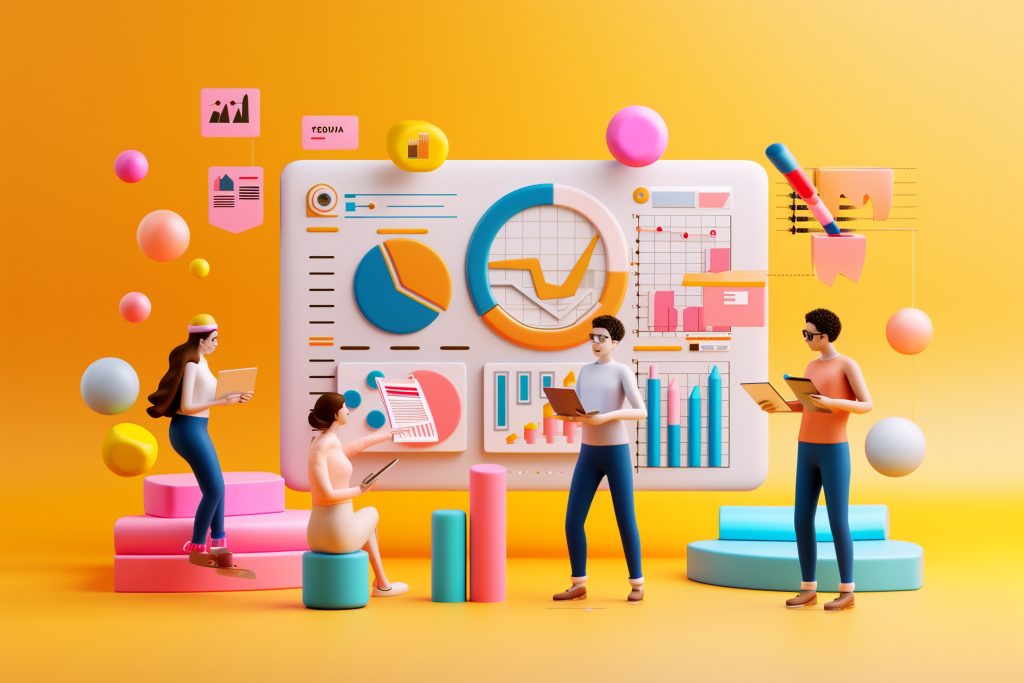In today’s rapidly evolving digital landscape, Generative AI has emerged as a game-changer for marketing. The capacity of AI to generate creative content, streamline operations, and deliver personalized experiences is transforming traditional marketing paradigms into dynamic, efficient, and highly adaptive strategies. The recent surge in technological advancements has provided marketers with powerful tools to enhance engagement, optimize campaigns, and measure outcomes with precision, marking a pivotal shift in how brands interact with their consumer base.
Here’s a deep dive into how Generative AI is redefining marketing efforts across various dimensions.
1. Content Creation at Scale
One of the most significant impacts of Generative AI is its ability to produce a vast array of content quickly and efficiently. From writing blog posts, articles, and social media updates to creating engaging video scripts and email campaigns, AI tools can generate tailored content that resonates with target audiences. This capability not only speeds up the content creation but allows marketers to produce more content at a higher quality with less human input.

According to Deloitte Digital, marketers who adopt generative AI have seen a 12% return on investment. The technology not only keeps up with content demands but also helps marketers stay ahead, ensuring that they can handle the increased content requirements which have grown by 54% in the last year.
The arena of content marketing has been particularly revolutionized by Generative AI, with tools like OpenAI’s GPT models facilitating the automatic generation of textual content—from blog posts to complete marketing narratives. Additionally, platforms like Jasper and Writesonic are assisting marketers in scaling their content production without compromising on quality, thereby driving better engagement and ROI.
2. Personalization
Generative AI excels in understanding and predicting consumer behavior based on data. By analyzing customer interactions, preferences, and feedback, AI can help marketers craft highly personalized content and offers. This level of personalization is key to enhancing customer engagement, improving conversion rates, and building lasting relationships with consumers.

AI tools now offer deep personalization across various customer touch points. For example, new features from Google aim to enhance the shopping experience by creating more effective product imagery and immersive ad formats, deepening the connections between shoppers and brands. Similarly, Salesforce notes that 68% of service professionals use generative AI to create and personalize service communications, significantly enhancing customer interactions and automating service communications
3. Visual Content Development
AI is not just revolutionizing textual content but is also making strides in visual marketing. Generative AI tools can now design graphics, edit photos, and even create entire video sequences, tailored to specific marketing campaigns.
Tools like Adobe Firefly and Canva’s Magic Write harness AI to automate the design process, enabling the creation of sophisticated graphic designs and imagery with minimal human input. These platforms use AI to suggest design elements based on the content’s context and the brand’s style, making it easier for marketers to maintain visual consistency across their digital assets.

Generative AI technology has significantly simplified video production and editing, a traditionally time-consuming and resource-intensive task. Platforms such as Synthesia and Lumen5 leverage AI to automate video creation, from scriptwriting to scene layout and final editing. These tools can generate promotional videos, tutorials, and social media video posts that are customized to a brand’s requirements and audience preferences.
These tools are equipped to maintain brand consistency in visuals while adapting designs to suit different platforms and devices, significantly reducing the workload of human designers.
4. Predictive Analytics and Decision Making
Generative AI goes beyond creation and into the realm of analytics and strategic decision-making. By processing large datasets, AI can predict trends, customer behavior, and the potential success of marketing campaigns. This predictive capability enables marketers to make data-driven decisions, optimize their strategies in real-time, and allocate resources more effectively.

Tools Enhancing Predictive Analytics
- Google Analytics Predictive Metrics: Google Analytics offers AI-driven predictive metrics like potential revenue from particular customer segments. These insights help marketers focus their efforts on high-value prospects and tailor their strategies to maximize ROI.
- Salesforce Einstein: This AI tool integrates with Salesforce CRM to provide predictions about customer behavior, sales trends, and marketing outcomes. Einstein’s AI models can analyze historical data to forecast future interactions, helping marketers to be more proactive in their campaigns.
- IBM Watson Marketing: IBM’s AI-powered tool excels in providing real-time insights and recommendations for marketing strategies. Watson analyzes customer data across multiple touchpoints, enabling personalized marketing at scale.
5. Enhanced Customer Interactions
Chatbots and virtual assistants powered by Generative AI are transforming customer service and support. These AI solutions can handle inquiries, resolve issues, and provide information around the clock without human intervention. They can also learn from interactions to improve their responses over time, providing a seamless and personalized customer experience.

6. SEO and Online Visibility
Generative AI tools are also enhancing Search Engine Optimization (SEO) efforts. They can analyze search engine algorithms, suggest relevant keywords, optimize website content, and even generate SEO-friendly titles and meta descriptions. This helps improve the visibility of brand content in search engine results, attracting more organic traffic to websites.
Generative AI tools like Clearscope and MarketMuse are transforming SEO by analyzing competitor content and providing actionable insights for content improvement. These tools help identify keyword opportunities, optimize content structure, and predict the potential success of articles, contributing to better rankings and increased organic traffic. According to industry studies, the use of AI in SEO can improve organic traffic by as much as 47%, with tools like CanIRank offering specific recommendations by comparing user content with top-ranking posts.

Moreover, AI-driven SEO tools automate many aspects of content optimization such as suggesting the optimal length, structure, and keyword placement, which are crucial for ranking well in search engines. They also provide real-time adjustments based on search engine algorithm updates and changing user behaviors, ensuring that SEO strategies remain effective and current. As AI continues to evolve, its role in enhancing online visibility through strategic, data-driven insights becomes increasingly indispensable for marketers aiming to achieve and maintain top search engine rankings.
Ethical Considerations and Challenges
Generative AI in marketing introduces significant ethical considerations and challenges that need thoughtful attention. Key concerns include data privacy and the potential for bias in AI algorithms. It’s crucial for marketers to ensure compliance with data protection laws like GDPR and CCPA by obtaining consent and anonymizing data. Furthermore, mitigating biases in AI outputs is essential, requiring diverse data sets and ongoing monitoring to promote fairness. The technology’s capacity to generate authentic-seeming content also raises issues of misinformation, necessitating a commitment to truthfulness and ethical guidelines to maintain the integrity of marketing campaigns.
Moreover, as AI automates tasks traditionally performed by humans, such as content creation and customer service, there are concerns about job displacement within the marketing sector. Companies should consider the social impact of automation and support strategies like re-skilling employees to adapt to new roles. Balancing the use of AI with human creativity and strategic insight is also critical to avoid over-reliance on technology, which can stifle innovation. Ensuring transparency and accountability in AI applications helps maintain consumer trust. Marketers must disclose AI involvement in content and services, and establish mechanisms to address any resultant issues, ensuring responsible use of AI in marketing.
Conclusion
Generative AI is undoubtedly redefining marketing, offering tools that not only create and personalize content but also provide insights and automate customer interactions. As this technology continues to evolve, it promises to open up even more innovative ways to connect with customers and streamline marketing efforts. However, as with any transformative technology, it is vital for marketers to remain mindful of its ethical implications and strive to use AI in ways that enhance both brand value and customer trust.



